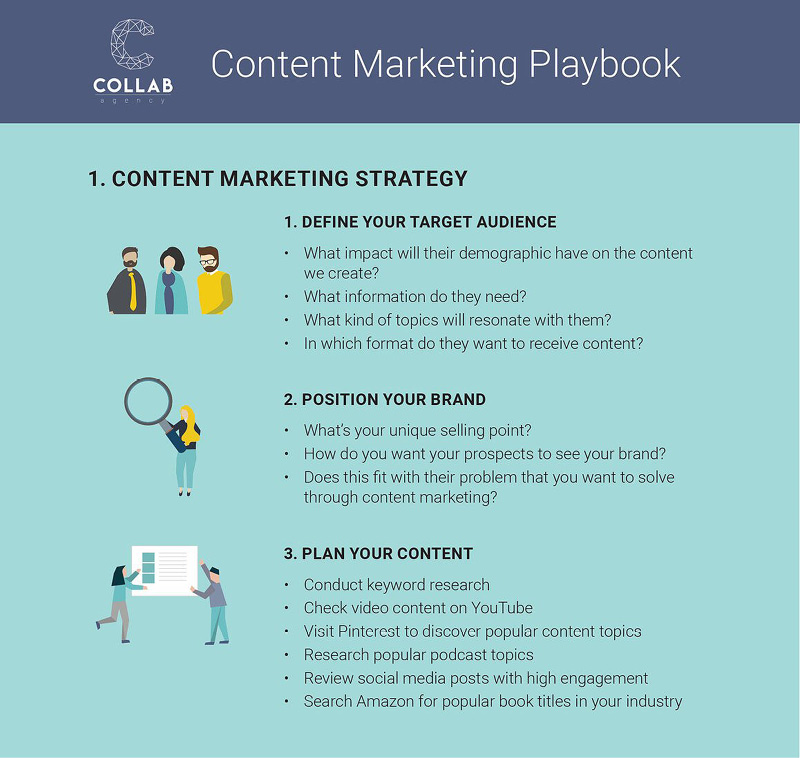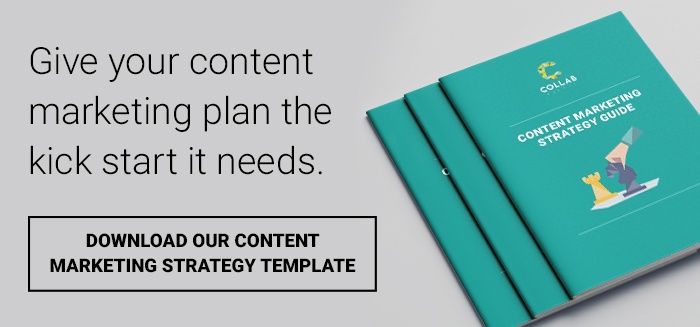7 STEPS TO A SUCCESSFUL CONTENT MARKETING WORKSHOP
Why run a content marketing workshop?
A content marketing workshop should help your business clarify how content marketing will help achieve its business objectives, such as sales revenue, profit and market share. The primary role of the content marketing workshop should be to decide on your content marketing strategies and plan, involving tactics that will help achieve the overall business plan.
The content marketing workshop will put in place the discipline and best practices that are needed to drive consistency of effort and content quality.
Step 1 – Workshop event planning
From the beginning, it’s important to get buy-in from the key stakeholders in marketing and sales – indeed across the entire business. At a base level, get everyone involved who will possibly be creating and promoting of content to attend the workshop such as:
- Anyone holding the content champion role.
- All team members including external agencies involved in writing content and creating graphics and videos.
- Anyone who’s going to use, promote and distribute the content. For example, sales leadership and social media teams.
To begin with you should audit the current state of content marketing in the business. Collect insights about previous content marketing efforts and campaigns, and do situation analysis as a pre-read for workshop attendees.
Step 2 – Agree on your business objectives
Beginning the workshop with a reminder to the attendees about how their contributions will be pivotal in helping the business achieve its overall goals i.e. revenue, profits, brand awareness and leads.
The sometimes-narrow focus of content marketers can lead myopic thinking that their goals are purely based around web traffic, leads, or engagement. So, it’s important to dispel this view and point out the difference between digital measures and business goals.
Stating your business objectives should provide reassurance for the case for content marketing in your business. The ultimate purpose of the workshop is to help the team move beyond seeing content marketing as a satellite marketing and communication function and move towards integrating it as part of the core business strategy.
Step 3 – Outline your strategy framework
With content marketing still being a new to many businesses it can become quite tactical. It’s no surprise that many businesses don’t have a clear idea of how to develop and stick to a content strategy and plan. Because you’re close to the customer you might intuitively know what content your audience engages with and how you can promote that new blog post, however across even a small team everyone has different intuition that can lead to messy content marketing.
At a minimum the workshop should set out agreed processes that you need to get your business to follow for consistent success in content marketing.

Step 4 – Align content with the buyer's journey
Defining your buyer’s journey is hopefully a task that has already been worked through and agreed upon. However, now is the time to dig deeper to understand your buyer’s behaviour – their needs, their intent, and their context – when you’re presenting your content to them. In your content marketing workshop try defining how the business will:
- Educate your buyer persona on key topics by helping them identify if they have a problem.
- Provide solutions to your prospect’s problems in the consideration phase.
- Get into your prospect’s shortlist and eventually encourage them to select your product or service.
Focus your workshop discussion on:
- The stage or category into which each piece of content they have resides?
- What are the skills and resources required to create content in the formats necessary for each stage?
This is where the pre work conducted such as the content audit and buyer’s journey will come in handy by guiding the team on how to make more precise decisions about content.
Aligning with your buyer’s journey along with the business goals at each stage is a great way to generate great discussion and creative thinking. Whether its education, acquisition, promotion, retention, or referral thinking above what you want the customer to do after engaging with your content will create purposeful content marketing.
Step 5 – Work on building an audience
Now you need to build an engaged audience who want to view the brand’s content because of the aligned needs.
In essence you are looking to build a community that exchanges mutual value. This community will help promote your messaging to more people, growing your audience reach and improving brand engagement at the same time. The content marketing workshop should address building your community as early as possible in the content planning process.
To begin with think about where your community will exist and how it will be managed.
- On the website or on a social platform like a LinkedIn or Facebook group?
- Who will manage and moderate the community?
Focus your workshop discussion on:
- The primary goals for the community such as customer education
- The process to encourage feedback from customers
- How you can grow advocacy via your community
Step 6 – Identify your way to create unique content
Strategy frameworks are great but, in the end, you need to find your own authentic voice. The challenge of the content marketing workshop in the end is how you are going to do this. What will work best for your business? And is it a repeatable process?
A great way to do this is to role play in groups the production of content from beginning to finish.
- Identify what your buyer persona wants and what interests it. Provide keyword research as stimulus.
- Specify the platforms to publish on and the ideal formats and length.
- Brainstorm ideas for content and content marketing calendar for a prescribed duration.
- Distinguish content for specific, time-based campaigns and ongoing content marketing.
Focus your workshop discussion on:
- What subject matter expertise is readily available in-house? Can the business actually create authoritative posts that position the brand as a thought leader?
- Is there a budget for marketing and content automation?
Step 7 – Build a plan to amplify your content
Content marketing and branding marketing work best together so take advantage of the plethora of platforms and channels for publication and promotion of your content and brand voice. A great content marketing workshop exercise is to work through those channels that will likely provide the biggest ROI on content, in addition to the achievement of brand marketing goals such as mass reach and engagement with the brand.
Content Marketing considerations to make decisions on:
- Identify the ideal content distribution network for your desired community platform, including partners’ networks, social channels, and other owned and earned media.
- Agree on the desired state for presence on industry-specific sites.
- Discuss and agree on test marketing audio-visual content distribution formats like podcasts and webinars for real life insights.
- Identify an ideal guest blogging campaign to aid brand credibility and thought leadership.
- Discuss the role of influencers to advocate and promote the brand.
- Agree on the role of paid media via PPC campaigns on Google search, Facebook.
- Discuss the role of a potential employee content promotion program, to boost content reach and engagement.
Focus your workshop discussion on:
- On the channels the marketing team has had the greatest success in promoting content
- The potential for business employees on social media? Have you empowered them to speak on company or industry affairs?
Key takeaways
- Do prepare pre-work and reading covering a content audit and situation analysis
- Content Marketing is still a new discipline and requires collaboration from the whole of business for success
- Setting up for Content marketing success requires a strategy based on the business goals
- Remember to keep the buyer’s journey at the forefront of all discussion
- Don’t divorce brand marketing from content marketing – the two work better together.










